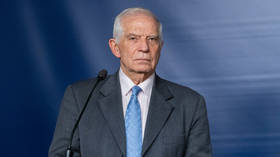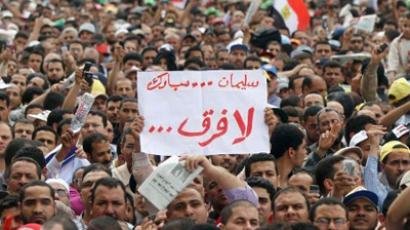Egyptian women fear fewer rights, more harassment after elections
As Egyptian run-off presidential elections approach, fears are mounting over the protection and rights of women amid prevalent sexual harassment and political repression. Egyptians fear returning to the female oppression of a distant past.
The run-off elections are to be held on June 16th between Ahmed Shafik, the last Prime Minister under ousted President Hosni Mubarak, and Mohamed Morsi, Chairman of the Muslim Brotherhood’s Freedom and Justice Party.The Freedom and Justice party holds a majority in parliament, and is known for its conservative Islamic values. These include having women work from the home as a good wife and mother and dress in the traditional headscarf. A Muslim Brotherhood ideal would be for Egypt to be under Sharia law, but they say they will not implement it unless the people of Egypt want it. Women say they would be better off under the rule of Mubarak since rights are being taken away, such as the right to divorce, instead of more being given. Parliament is also discussing proposals to reduce the marriage age for a girl to 14 and a custody law that will give children over eight to fathers. "I think it's a disastrous Parliament; how this can represent a society?" said Dalia Abdel Hamid, the gender officer at the Egyptian Initiative for Human Rights. "After the revolution everyone wanted to be represented and to have their voices heard but … women are just being marginalized by all the parties."The post-Mubarak parliamentary elections brought much disappointment as only 11 women won seats in parliament. This is compared to the minimum 64 seats under Mubarak. One of the female MPs, Muslim Brotherhood’s Azza Al Jarf, is controversially working to reverse the 2008 ban on female genital mutilation. According to her, women should be able to make their own choices with regards to their body. However, a study by the World Health Organization found that 50 percent of under-aged schoolgirls had already undergone female genital mutilation. “Now it’s if we are beginning from zero point again, which is very frustrating. Usually after revolutions you feel that you are going to gain more,” Egyptian writer Hanan Shouman told RT. Egyptian women every day live in fear of sexual harassment. RT’s Sara Firth reports that in public places, like the metro, there are gender segregated areas where women seek refuge from men’s wandering hands. Women are also dressing more conservatively to avoid unwanted touching. Women say that sexual harassment during political protests were not just committed by riot police but by those who were fighting on their same side. Mona Eltahawy, an Egyptian-American columnist writing for Foreign Policy Magazine, said women like her, who were attacked by fellow protestors, are hesitant to report these incidents for fear that they may “taint the revolution.”The military, which was sent to protect the revolution after Mubarak left power, arrested female activists and sent them for virginity tests. A doctor, who inserted his finger into the females to verify their virginity, was sued and acquitted in March. "Do you know why they subjected us to virginity tests?" Samira Ibrahim, one of the first to sue to the doctor, asked Eltahawy. "They want to silence us; they want to chase women back home. But we're not going anywhere." In its treatment of women, the Supreme Council of the Armed Forces (SCAF) was acting under the attitudes of the old Mubarak regime, according to Egyptians. Egyptian women, who played a key role in the Egyptian Arab Spring, are now being discouraged to protest. They are being told by Dr. Manal Abul Hassan, the FJP Women's Committee Chairwoman, it is more dignified to let their brothers and husbands protest on their behalf. The Egyptian public was outraged over one incident where military troops dragged and stomped on a woman after exposing her bra in Cairo’s Tahrir Square. Protestors say they are targeting woman, because they know that people are willing to risk their own lives but are riled when their wives, mothers and sisters are humiliated. In another incident, a few hundred women protested on International Women’s Day and were verbally attacked by furious men who claimed the women’s demands for rights were anti-Islam. Hanaa Elnemr, a participant in the April 6th Protest Movement, told RT there were still problems with women and men in the streets as the men are still not open to stand side by side with women in political activities.














